Assembled here are key sources that have shaped the modern Middle East, Zionism and Israel. We have included items that give texture, perspective and opinion to historical context. Many of these sources are mentioned in the Era summaries and contain explanatory introductions.
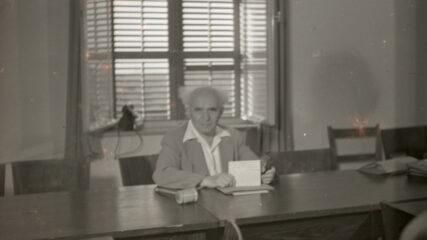
The Status-Quo Agreement is an understanding reached between David Ben-Gurion, then the chairman of the Jewish Agency Executive, and the religious parties in the period before Israel became a state.
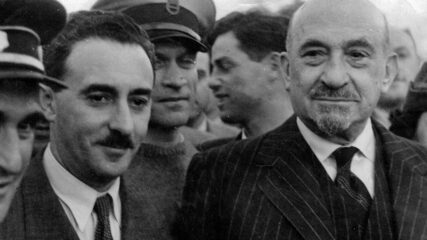
Sharett gives an overview of Israeli foreign policy, key issues, and relationships with UN and Arab states.

With crisp analysis, Haganah Commander Yigal Allon, later a Prime Minister of Israel attributes Israel’s successes to multiple factors including the absence of a centralized Arab command, limited Arab military training, underestimating the potential fighting capabilities of local Arabs, and Israel’s success in integrating its citizens into the war effort.
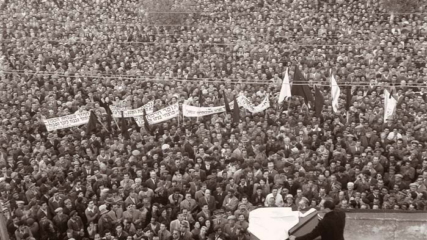
In an impassioned Knesset speech, Menachem Begin staunchly opposes accepting $1.5 billion in German reparations for Jewish deaths during WWII. No price, he believes, can be put on the lives lost.
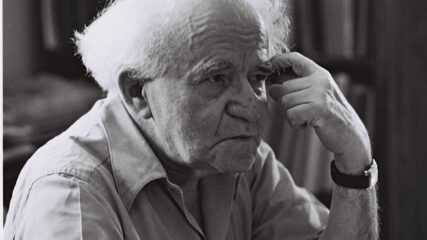
Israel’s first prime minister was a prolific writer. In this excerpt of a 50-page document, he notes that the Jewish nation’s DNA included relentless challenges marked by dispersal, ostracism and hatred by many people. Despite these adversities, Israel’s establishment symbolizes a remarkable victory against all odds — a culmination of the Jewish people’s tenacity and unyielding spirit. The state and Zionism were not remotely close to being finished, nor having succeeded in the quest for the Jewish people’s normalization.

In response to President Eisenhower’s demand that Israel leave Sinai, Prime Minister Ben-Gurion provides a detailed history of Israel at the UN and Egypt’s denial to Israel of use of the Suez Canal. He stresses Egyptian “injustice, discrimination, hostility, and boycott” imposed on Israel.

Ben-Gurion elegantly connects modern Israel from messianic redemption to Zionism, building the country through labor and immigration, with dual needs to remain actively linked to the Jewish diaspora and Jewish values through education.

With tensions on its borders, Eshkol tries to reassure Israeli public. Instead he gives a “painfully faltering” speech. Popular and party disgruntlement follow, opening the way for Eshkol to turn over the Defense Ministry two days later to General Moshe Dayan.
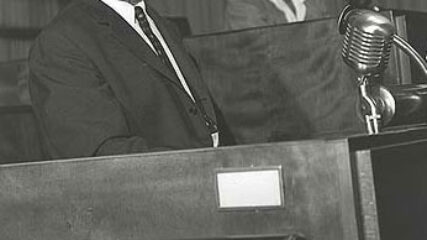
Two days after the conclusion of the June 1967 War, Eshkol, recounts the series of events that led to war, the war itself and the immediate aftermath. He reaches out to Arab states for peace seeking a path to peace with her belligerent neighbors. A week later, Israel will quietly messages Cairo and Damascus through the US, hat Israel seeks an end to the conflict. No answers are received.
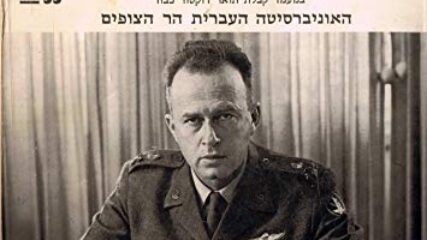
Receiving an honorary doctorate from the Hebrew University after the conclusion of the June 1967 War, Rabin delivers a speech on behalf of Israel’s entire military. He highlights the harsh realities of war yet concentrates on commending the extraordinary efforts of Israel’s armed forces.
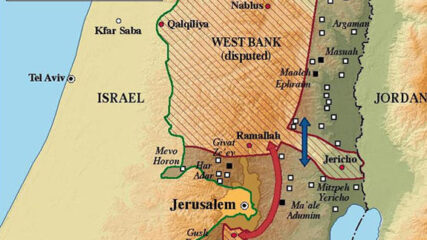
Yigal Allon’s plan for handling the areas captured from Jordan during the just-completed Six-Day War reflects Israel’s previous border vulnerability and seeks a West Bank arrangement that is not a strategic or geographic threat.
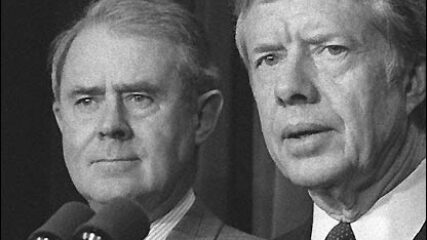
With candor, Israeli Foreign Minister Allon tells Secretary of State Vance that the Israeli Labor government would under no circumstances negotiate with the PLO until it gave up terrorism, recognized UNSC 242, and unequivocally accepted Israel’s right to exist. Only in 1993, did the PLO accept these premises, Sixteen years had then passed while Israel built settlements virtually without restraint in the territories.
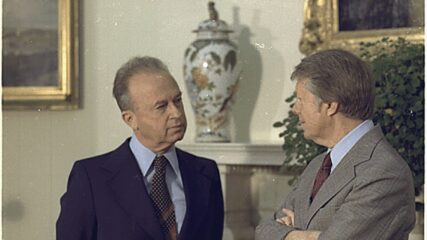
This first Carter-Rabin meeting was unpleasant at best. Rabin would not turn over Israel’s negotiating prerogatives to the US; Carter publicly told Israel that it might have to return to the June 1967 borders. Carter said Rabin was like a “dead fish.” and Rabin said that he felt ‘cornered by Carter.” His administration was interested in carving out the West Bank for Palestinian political expression even before the PLO was prepared to accept Israeli legitimacy. And Israel was not prepared to withdraw from the West Bank, a position also held by Menachem Begin.

Prime Minister-elect Begin rebukes President Carter’s assertion that Israel will need to withdraw from almost all the lands Israel secured in the June 1967 war, especially Jerusalem and the West Bank. Begin is adamant opposed to dealing with the PLO. Begin refuses to relinquish Israeli decision-making to US preferences or dictates. These fundamental policy disagreements will remain unresolved between Begin and Carter for the duration of Carter’s presidency, and years after.

Begin tells Carter that Judea, Samaria (the West Bank) and the Gaza Strip will not be placed under foreign sovereignty; likewise, these areas will not be annexed, leaving them open for possible negotiations.

After his surprise electoral victory in May, Prime Minister Menachem Begin traveled to Washington to establish a rapport with President Carter. While this initial meeting was cordial, each met the other’s stubbornness, a characteristic that would keep their relationship respectful but acrid for years to come.
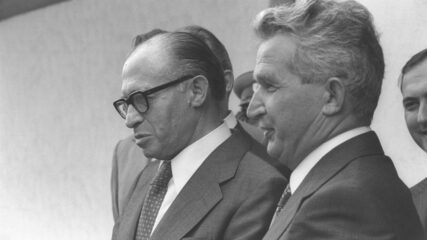
The Romanian president told Menachem Begin that Egyptian President Sadat was interested in negotiations with the Israelis. This secret visit took place three weeks before Israeli Foreign Minister Moshe Dayan met secretly with Egyptian Vice President Hasan Tuhami in Morocco.

Unknown to the Carter administration and one month before it issued the US-Soviet Declaration to convene an international Middle East Peace Conference, Prime Minister Begin tells the cabinet that he learned from the Rumanian president that Sadat wishes to have Israeli and Egyptian representatives meet in secret talks. That bi-lateral Dayan -Tuhami meeting takes place on September 16. Begin refers to advanced drafts of proposed treaties between Israel and each Arab state; he presents details about Rumanian Jewish immigration to Israel.
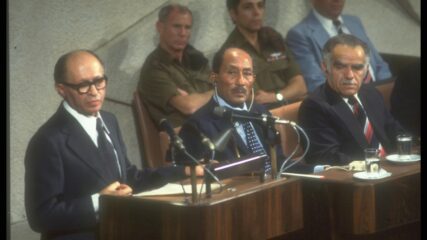
Begin welcomes Sadat’s bold initiative, seeking an end to the conflict with other Arab states through negotiated treaties. Begin invites other Arab leaders to negotiate as Sadat was doing.

Five weeks after Egyptian President Anwar Sadat flew to Jerusalem in November 1977, to accelerate Egyptian – Israeli negotiations, Begin brought to President Jimmy Carter, Israel’s response to Sadat’s peace initiative: political autonomy for the Palestinians in the West Bank and Gaza Strip. No Palestinian state was considered.
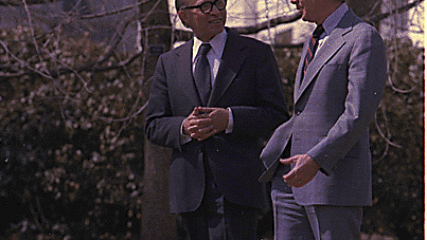
After a year in office, the Carter administration’s initiative to achieve a comprehensive Middle East peace between Israel and her Arab neighbors had stalled. At this White House meeting, Dayan reviewed Israel’s concerns about the West Bank and Brzezinski criticized Begin’s autonomy plan for the Palestinians. Begin and Carter’s mutual dislike over policy decisions continued to rise.

The Israeli delegation at Camp David discusses a meeting among Menachem Begin, Anwar Sadat and Jimmy Carter at which Sadat presented a peace framework that Begin called “the most extreme document that the Egyptians have ever written”
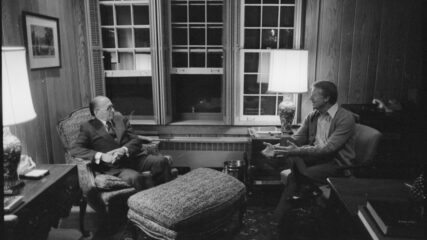
In this meeting, the contents of which have not been released by the Foreign Relations of the United States (FRUS) but are available from the Israel State Archives (ISA), Begin clearly committed that “perhaps one military settlement” in the Jordan Valley would be established during the three months of the treaty negotiations. The extraordinarily contentious public dispute on the settlements would mar the diplomatic success of the Camp David Accords and add tension to the already fraught Carter-Begin relationship.

Begin agrees to halt settlements construction only for the duration of the peace treaty negotiations, not until Palestinian autonomy is applied. Carter erroneously believes that Begin made a promise to halt settlements.





















